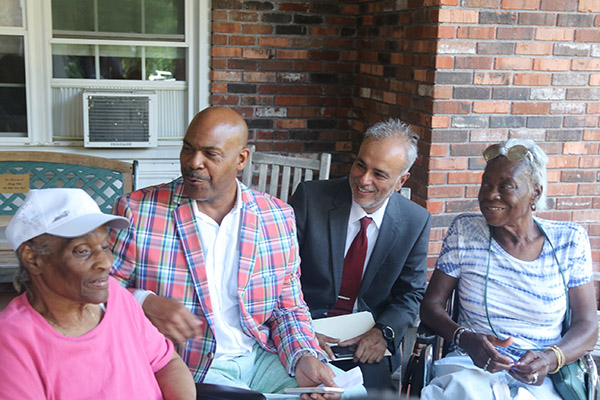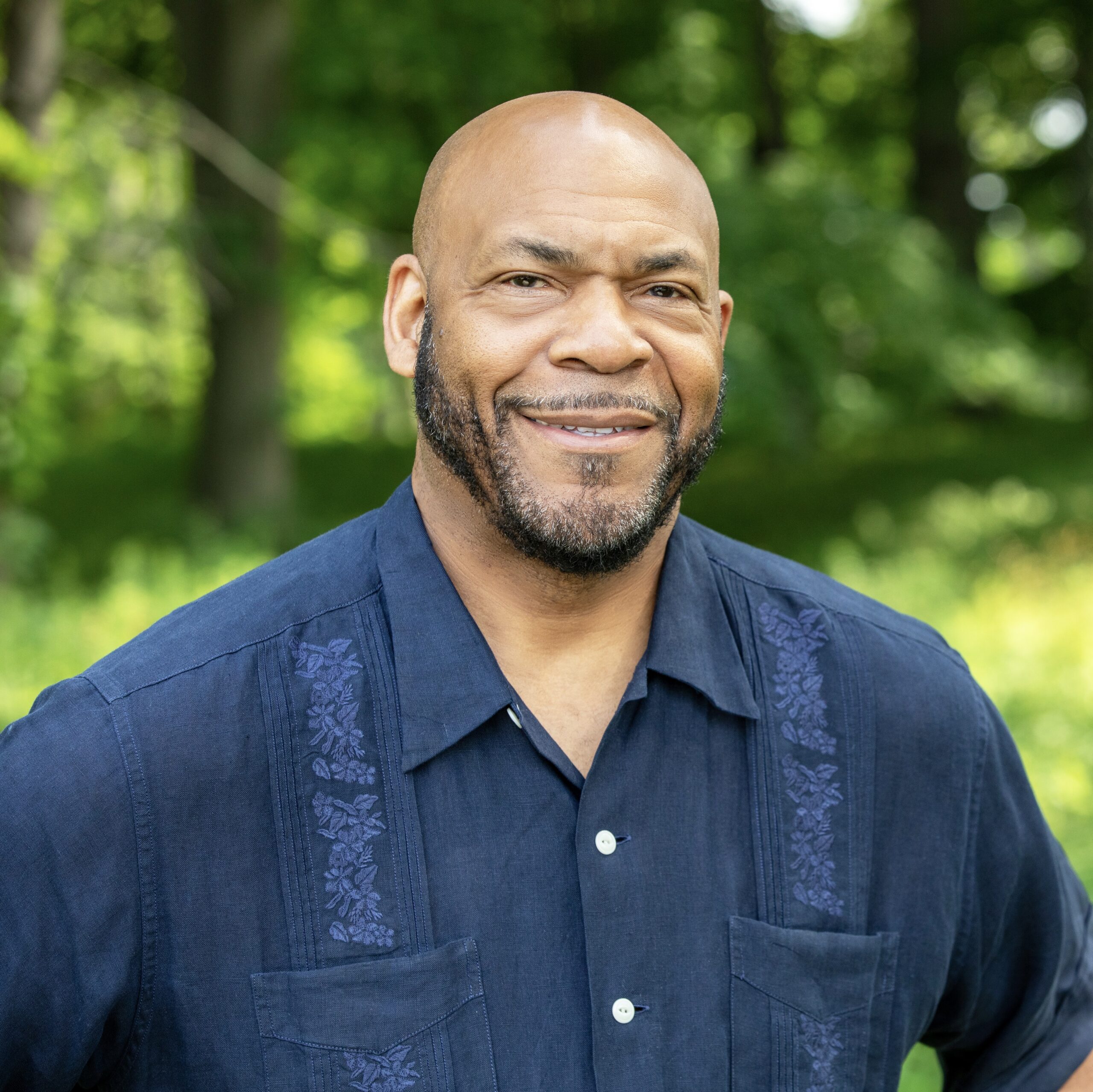Senators McCrory, Anwar Pledge Support for Kimberly Hall South Residents After Threat of Closure

State Senators Saud Anwar and Doug McCrory meet with residents of Kimberly Hall South Thursday.
WINDSOR, CT – Today, State Senators Saud Anwar (D-South Windsor) and Doug McCrory (D-Hartford) joined officials including State Representatives Jane Garibay (D-Windsor) and Michael Winkler (D-Vernon) in pledging support for Kimberly Hall South.
The nursing home, which provides homes to roughly 100 clients and employs approximately 95 people living in Windsor, Hartford and Bloomfield, is one of nine across the state that is considering closing due to state policy. Advocates for Kimberly Hall South argued Thursday that statistics do not tell the full story and that Kimberly Hall South provides important and vital services for its population.
“Yesterday, there was a storm, and if that storm led to 100 people losing their homes, it would be front-page news in every newspaper,” said Sen. Anwar. “100 people are going to lose their homes at Kimberly Hall South. This should be something we all unite against, making sure we protect homes for the most vulnerable. And if you look at the homes of the individuals who are going to lose their jobs, hundreds more could be impacted. This is a time where everyone needs to stand up to protect them.”
“Listening to the patients here at Kimberly Hall South, it’s quite evident we need to do more than look at numbers on paper,” said Sen. McCrory. “We have to listen to the human stories and human service behind the fact that closing this facility would be more detrimental to our state than good. It’s important for us to have a conversation with those in power to realize we need to revisit this conversation in the future.”
“The loss of Kimberly Hall would be a huge loss to our community, not only in employees and in clients, especially hearing their stories, but their involvement with the community has been huge over the years,” said Rep. Garibay. “This is a good facility, it’s a needed facility, and we need to fight to keep it here.”
“I think it should be clear that none of these convalescent homes are struggling due to quality of care,” said Rep. Winkler. “They are having a problem because their census isn’t what the state wants it to be. I think we should make adjustments for not only what the homes have done in terms of single-person unit rooms and dialysis, but I also think the quality of care should be factored in. At this home, Kimberly Hall, the quality of care is four stars. I don’t think we should close down four-star facilities.”
Advocates for Kimberly Hall South argued that the home provides a dialysis center providing both residential and outpatient care, supporting both residents and individuals in the region. This practice also helps save the state hundreds of thousands of dollars because it treats residents on campus, they continued.
Without local care, advocates said, residents would lose the ability to receive localized and dignified care, also noting its specialized care draws residents from across the state. The jobs Kimberly Hall provides in the region supports the local economy, they continued, with many employees being women of color. The jobs provide quality wages and benefits they may not otherwise have access to.
Additionally, residents expressed grave concerns about what would happen if the home did close.
Margaret De Souza, one of the residents, was in tears talking about losing her home, possibly having no place to go and becoming homeless due to this decision. The practice of transferring seniors from homes can lead to relocation stress syndrome, or “transfer trauma,” is known to negatively impact their health. According to a 2018 story in the Journal Inquirer, 17 residents transferred from Blair Manor Nursing Home in 2017 when that facility closed died after leaving the facility, including five who died within two months of being transferred.
Kimberly Hall South has a license for 180 beds but actually has 131. The Department of Social Services rate considers the license rate, not the actual rate; if the actual rate was considered, its occupancy rate would be at 74 percent, not 53.8 percent, well above the state’s stop loss threshold. Its management feels it is being punished in the face of innovation, as it provides dialysis services instead of having empty beds.
Share this page:
